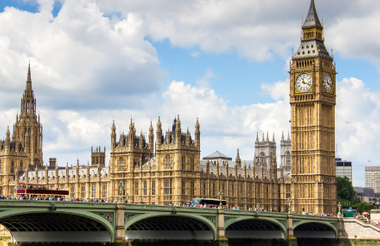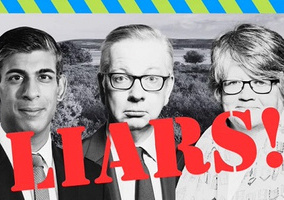The Charity Commission recorded a fall of more than 60% in ‘higher-risk’ compliance cases during the 2024 general election period, compared with 2019.
The period between 22 May, when the election was called, and the vote on 4 July saw just 14 cases that were deemed sufficiently high-risk for the regulator to contact relevant charities’ trustees.
The figures came in a review of the Commission’s casework during the election period, which its chair, Orlando Fraser, said demonstrated most organisations’ “constructive and lawful” approach to campaigning and political activity.
Charities can partake in some “political activity” but must remain neutral on party political issues, including undertaking activities likely to favour any candidate in the run-up to an election.
‘Positive and significant’ decline in cases
The report says that of more than 170,000 registered charities, the regulator opened 34 new compliance cases to assess concerns and responded to 35 advice requests between 22 May 2024 and 4 July 2024.
This figure relates specifically to activities around general election campaigns. There were 14 high-risk cases compared with 38 recorded ahead of the 2019 election, which the regulator called a “positive and significant decline”.
This comes in the wake of a two-year campaign by the Commission reminding organisations of rules around political activity and campaigning, but the regulator said there were still some instances where it was “clear [a] charity or a trustee or staff member had not understood or chose to disregard our guidance”.
Leaflet controversy
The Commission looked into several cases where trustees or senior leaders had openly endorsed a political party in its campaigning material, without emphasising that they were commenting in a personal capacity.
In one example, the chair of Age Concern Wolverhampton had appeared on a leaflet backing a Labour candidate, Warinder Juss, which mentioned both the charity’s name and her role.
The chair, Diane Vukmirovic, stepped down and the charity issued a ‘cease and desist’ message to Juss’s campaign, after the regulator intervened.
The Commission also said it had handled a number of cases in which charity employees or trustees used social media in ways that called into question organisations’ neutrality.
RSPB post ‘inappropriate’
In a case that occurred before the general election period, in August 2023, an RSPB employee posted a thread on X that called Rishi Sunak, then prime minister, along with his housing secretary Michael Gove and environment secretary Therese Coffey “liars”.
The Commission found the tone and nature of the post “inappropriate” and that it had not been signed off at the appropriate level within the charity, which could have done more to ensure policies and procedures were followed.
Its report also highlights additional issues involving candidates’ visits to charities, which carry the risk of appearing to suggest an endorsement by giving an individual a platform.
The regulator mentioned an event hosted by the British Alevi Foundation in which a candidate was invited to speak and unexpectedly delivered a political speech critical of the outgoing Conservative government, which the charity live-streamed.
The report said the case had been closed after “prompt” action by the charity. It says this reflected a trend in which organisations responded to concerns in a “proactive and timely manner”, it added, with charities also apparently self-reporting issues more than previously.
‘Charities have effectively used their voices’
Fraser said a general election represents a “critical moment for charities, which provide vital insight on how to address issues facing our society”.
“I have set out our expectation that they take the lead in encouraging debates that are held with respect, tolerance and consideration of others at a time when, sadly, this is not always the case in public discourse,” he added.
“This election has seen some of our lowest case numbers, which is true testament to the constructive and lawful way the sector has engaged with debates on the issues they champion,” Fraser said. “Many charities have effectively used their voices with confidence while following electoral and charity law – supported by our published advice and guidance.”
Related Articles












